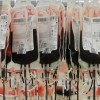How do we predict the weather?
Interview with
One impact of climate change is that scientists predict more severe extreme weather events such as flooding. Floods are most commonly caused by rainfall, but how do we know when it is going to rain, and by how much? Rob Thompson is a meteorologist at the University of Reading, and he explained to Chris Smith how we predict the weather...
Rob - So these days, computer models have really been run to work out the physics of what's going on in the atmosphere. In essence, fluid dynamics of what's happening with the water moving around in the air systems and that how weather forecasting is done for any kind of weather really; rain, flooding, or droughts, etc.
Chris - What are the giveaways when you look at the pictures and the models that you're gathering that tells you there's a lot of energy in the atmosphere in one place that might lead to a storm, and there's also a lot of water which would potentially turn into a flood?
Rob - You kind of get two different types of flood really. So when we're thinking flooding, you get flooding caused by very intense rain, sort of thunderstorm type events where very heavy rain falls for usually a fairly short period. But we also get, of course a lot of river flooding where it rains necessarily desperately hard, but for hours and hours, or even days on end and that, obviously, can cause rivers to burst their banks and so on. And they're quite different mechanisms; the weather that generates them is really quite different and different forecasting challenges.
Chris - How far ahead can you see into the future?
Rob - These days, I would say sort of out to about five days our weather forecasts are pretty good, certainly in terms of predicting the general weather systems, what kind of weather we are going to have. Much beyond that, out to probably ten days there's certainly significantly better than just guess work. Beyond that really, tends to be much more difficult.
Chris - What would you say your level of accuracy is? What percentage error do you give on your forecasts these days?
Rob - Predicting for instance the temperatures, the Met Office will quote values of around 95% of the time being correct to within a couple of degrees for daytime maximum for instance for tomorrow. So that's sort of really the good kind of numbers.
Chris - And when might you be able to tell that there's bad news on the way? How far in advance can you say - well that really looks like it's building towards something that could dump an enormous amount of water or be a torrential deluge over a period of time that would lead to a flood?
Rob - So again, it would depend to some extent on what kind. So if you're talking the sort of intense rainfall, we're probably a few days out now; we'd probably be in a situation where there's definitely the possibility of really heavy strong convection. Convection is basically the sort of shower clouds and thunderstorm. It's basically just caused by the hot air rises. We all know that hot air rises and it's what leads to thermals and also, if it gets going strongly, it leads to full on clouds, thunderstorms and eventually a lot of rain can fall, and we'll really know the conditions are setting up to make that very likely a few days out. What we don't know is where it would trigger. I think the best way to analogy for that is to think of putting a saucepan of water on a hob, you can predict fairly accurately what time it's going to start boiling. So we all know if you put hot water on the hob, it will boil in a few minutes time. But what we can't really predict at the moment is exactly where each of the bubbles are going to form in the bottom of your saucepan and start bubbling up, and that's kind of what happens with these heavy rain storms at the moment. The models can predict that it's going to start happening over a fairly wide area, but they're not very good at the moment at saying precisely when and exactly how hard any rain would be, so exactly how intense the storms that would generate would be.










Comments
Add a comment